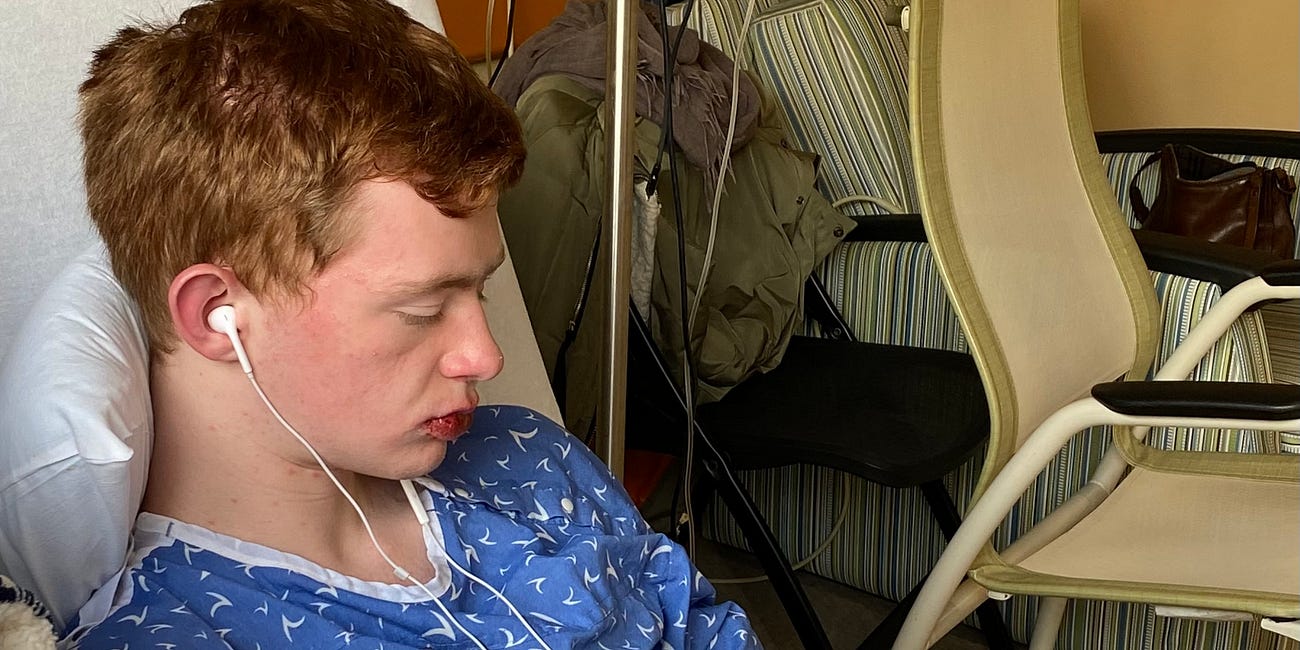How To Leap Over The Cliff
Five Things That Parents Should Do To Transition to Life After High School
Photo by Peter Conlan on Unsplash
Special ed families often describe the time when public school ends as “the cliff.” After graduation, parents learn that public services for their children dry up and their families fall into the abyss — no help, nothing for the young adult to do all day, no support for deficits, just nothingness. To prepare myself for this cliff, I did massive preparation, like I was going to hike the Appalachian Trail. I still have some fears, but I think I have a good game plan.
Nobody helped me prepare for this cliff. There were no counselors or staff members at the high school saying that you need to do this and that. There were no after-school talks by experts or parent groups to give advice. This stuff is all hyper-local, so books don’t help. I didn’t know where to get information. I had to spend three years researching everything.
Weirdly, some parents get a little proprietary about their prep work and won't share. Some feel that you’re cheating by asking them for help, and that you should suffer like they did. Others want to keep information about government benefits quiet, fearing that their checks will be taken away or reduced. Some are embarrassed by what their young adults are doing after graduation. That means that sometimes you have to get info from a “Rando on the Internet,” rather than your neighbors and friends.
My best advice is prepare, prepare, prepare. Do your own research. Find trusted sources. Seek out knowledgable sherpas to show you the way.
I firmly believe that good preparation will enable you take the Great Leap over the cliff, rather than fall to the bottom. It’s all doable, if you take it slowly and methodically. There are great outcomes for those who do their homework.
Here are FIVE things to plan for as you make your Great Leap:
Money.
The government provides support for individuals, who for various reasons are unable to hold down steady employment. At age 16, do you know whether or not your student will ever be employed? No, but keep in mind that 80 percent of people autism — even those that finish college — are not employed. Your student can start receiving money, while they are getting training for a career in college or elsewhere.
Your first step is SSI. Start working on it at age 17, because they can start receiving SSI at age 18.
SSI is actually the smallest pot of money. After getting SSI, you’ll automatically qualify for Medicaid. Medicaid is a block grant to the states, which then distributes a much larger support check to families when their child turns age 21.
I’ll do a longer post about money at some other time, with some advice about where to get state-specific information. But one newsletter won’t be enough, so I suggest watching webinars on the disability system through various local non-profits or with private financial advisors. Even if you are rich enough to outsource this entire job to a legal professional, you still have know all the words and the meanings.
It’s a lot of money. (Double the amount that I originally thought.) Please do your homework.
School.
There are more and more programs opening up at college campuses around the country for all types of kids with all kinds of disabilities. Just down the block from me, the local community college built hydroponic farms in shipping containers to teach job skills to students with developmental and intellectual disabilities. Amazing! Ian is going to start a program there that’s going to help him get a job in computer repairs. Yay!
I’m so excited about all the opportunities that I’ve got a whole website and Facebook page devoted to sharing information about it.
Filling Up the Day.
If school isn’t the right place for your young person, they will still need something else to do all day. They might chose a day program, which mimics the full day model of a public school with job training, social opportunities, and trips.
If you’re not happy with the day program offerings, you can use your budget from the state to hire an agency that will take your young person to various activities around town, like a yoga class at the Y or for lunch at the mall. You and this agency will patch together classes and activities to build a customizable day program for your child.
In addition, you will pay yourself using the state budget to manage your child’s life. If it’s your job to build the calendar, drive around to activities, offer support, make the lunch, arrange the social activities, network to gain information, then you get to pay yourself for that work.
Build Things.
If your community doesn’t offer enough social activities for young people with disabilities, you can build them yourself or pressure others to do so. Honestly, this is part of your homework. This is a lot of work, so chip away at this job slowly and gradually. And make some life-long friends along the way.
Set Boundaries.
Your whole life cannot be going to disability meetings and driving your kid to karate classes at the YMCA. You must have your own life, take your own vacations, and hang out with friends. You are allowed to use your state funds to provide you with this respite care. So do it.
LINKS
I’m a little whooped. I just did a one-hour webinar about options for colleges for autistic kids. Totally fun. I hope you join us sometime.
For fun, I wrote a couple of newsletters about Kate Middleton.
We did spring break in Cancun, where Ian had a mini-seizure. Vacations continue to be tricky for my family. Our trip was mostly lovely despite the mini-seizure and the aftermath of Jonah’s afternoon doing Tequila shots with some Russians. Pictures here, here, here, and here.
Epilepsy, Respite, and Travel
In November 2019, Ian fell out of his chair. He was there on the ground for just a second or two with his eyes were open. As I helped him get up, he was really confused about why he was on the floor. That was his first visible seizure, but it didn’t last long or he didn’t shake, so his doctor wasn’t too worried. Maybe it was a one-off, she said.





Super helpful, as always! Thanks, Laura.